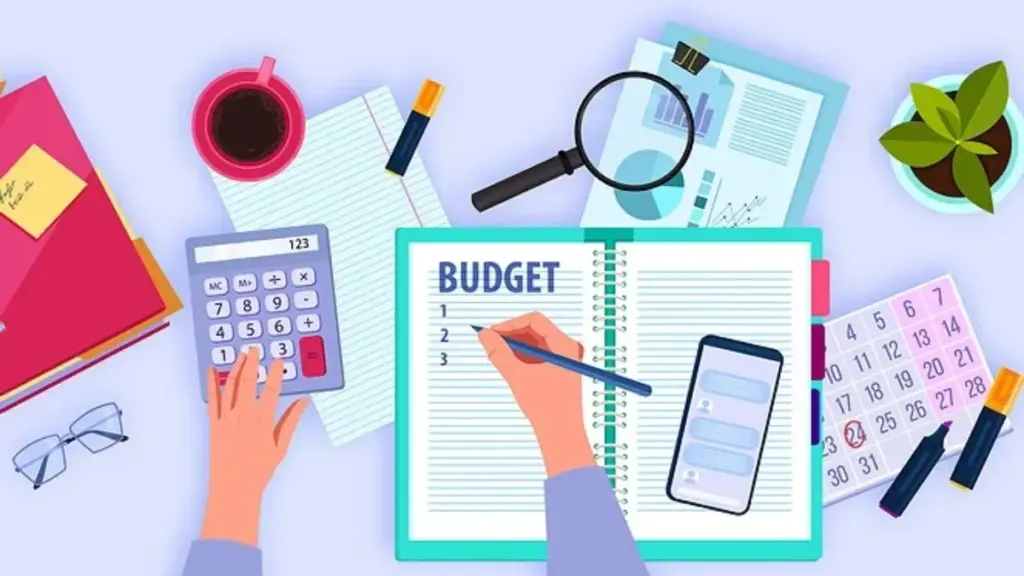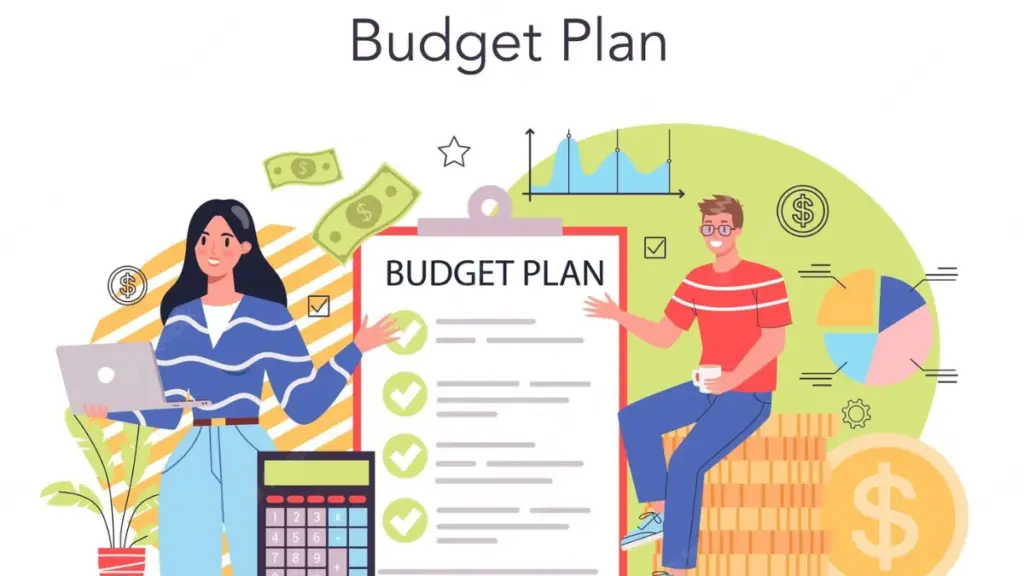Budget Planning Keeps Your Money Organized and Goals Achievable
Budget planning is one of the most powerful tools for financial success. It allows you to control your money instead of letting it control you. With a well-structured budget, you can allocate funds wisely, meet your daily needs, save for emergencies, and achieve both short-term and long-term goals. Whether you earn a modest salary or a high income, budget planning ensures your money works in your favor.
What is Budget Planning?

Budget planning is the process of creating a plan for how you will spend, save, and invest your money over a specific period, usually a month or year. It helps you set priorities, track your expenses, and make adjustments to stay on track. A budget is not about restricting yourself—it’s about making conscious decisions to use your money in ways that bring you closer to your goals.
Why Budget Planning is Important
Without a budget, you may end up spending more than you earn, falling into debt, and delaying important goals like buying a home, starting a business, or retiring comfortably. Budget planning offers several key benefits:
- Financial Clarity: You know exactly where your money is going.
- Better Control: You can cut unnecessary expenses before they become a habit.
- Goal Achievement: You allocate funds to specific objectives.
- Reduced Stress: You avoid money-related anxiety by planning ahead.
Steps to Create an Effective Budget Plan
1. Assess Your Income
Start by identifying all your income sources, such as salary, business earnings, rental income, or side projects. Always base your budget on your actual income, not your expected or future income.
2. Track Your Expenses
Record your expenses for at least a month to understand your spending habits. Break them into categories like housing, groceries, utilities, transportation, entertainment, and savings.
3. Set Financial Goals
Your budget should reflect your goals. Goals can be short-term (saving for a vacation, buying a gadget) or long-term (retirement, purchasing a home).
4. Allocate Funds Using a Budgeting Method
Popular budgeting methods include:
- 50/30/20 Rule: 50% needs, 30% wants, 20% savings/investments.
- Zero-Based Budgeting: Every rupee is assigned a purpose, so nothing is left unplanned.
- Envelope Method: Assign cash to envelopes labeled with expense categories to avoid overspending.
5. Plan for Emergencies
Set aside money in an emergency fund to handle unexpected situations without disrupting your budget.
6. Monitor and Adjust
Review your budget monthly to see if you’re meeting your targets. Adjust when income changes or when expenses increase unexpectedly.
Tips for Sticking to Your Budget
- Avoid Impulse Purchases: Use the 24-hour rule before buying non-essential items.
- Use Cash for Discretionary Spending: This makes you more aware of your spending limits.
- Automate Savings: Transfer a fixed amount to your savings account automatically.
- Review Subscriptions: Cancel unused memberships or services.
- Reward Yourself: Allocate a small portion of your budget for personal enjoyment.
Budget Planning for Different Lifestyles
For Salaried Employees:
Plan around fixed monthly income, prioritize bills, and schedule savings immediately after receiving your salary.
For Business Owners:
Since income may fluctuate, create a conservative budget and keep a larger emergency fund.

For Students:
Focus on managing limited resources, avoiding debt, and saving for future career needs.
For Families:
Plan for shared expenses, children’s education, and long-term stability.
Common Budgeting Mistakes to Avoid
- Ignoring Small Expenses: Small daily purchases can add up over time.
- Not Adjusting for Income Changes: Your budget should evolve with your income.
- Being Too Strict: Unrealistic budgets often fail; allow room for flexibility.
- Skipping Emergency Funds: Without one, unexpected expenses can disrupt your entire plan.
Benefits of Effective Budget Planning
- Keeps your spending in check.
- Helps you achieve goals faster.
- Encourages better money habits.
- Reduces debt risk.
- Increases savings and investments.
Also Read: Smart Money Moves: Strategies To Build Wealth In Any Economy
Conclusion
Budget planning is not just for those facing financial challenges—it’s for anyone who wants to use their money wisely and achieve their dreams. By setting clear goals, tracking expenses, and staying disciplined, you can create a budget that works for your lifestyle. Remember, a budget is a living plan—it should adapt as your income, needs, and goals change. Start small, stay consistent, and watch how budget planning transforms your financial life.
FAQs on Budget Planning
Q1. What is the easiest budgeting method for beginners?
The 50/30/20 rule is simple and effective for most people starting out.
Q2. How often should I review my budget?
At least once a month to ensure you’re on track and adjust if necessary.
Q3. Can budget planning help me get out of debt?
Yes, by controlling spending and allocating extra funds toward debt repayment.
Q4. Should I include entertainment in my budget?
Yes, including leisure activities prevents feelings of restriction and helps you stick to your plan.
Q5. How much should I save each month?
Aim for at least 20% of your income, but adjust based on your goals and expenses.
Q6. What if my expenses are higher than my income?
You should immediately cut unnecessary costs and explore ways to increase income.
Q7. Is it necessary to have an emergency fund?
Absolutely, it’s essential for handling unexpected expenses without financial stress.
Q8. Can budgeting help with long-term wealth building?
Yes, it ensures consistent savings and investments, which are key to wealth creation.
Q9. How can I track expenses easily?
You can use a notebook, spreadsheet, or budgeting app to record daily spending.
Q10. Is budget planning only for low-income earners?
No, it benefits everyone by helping them achieve financial goals efficiently.



